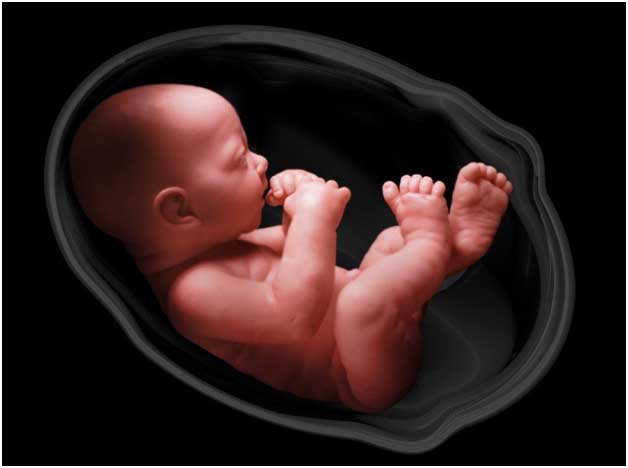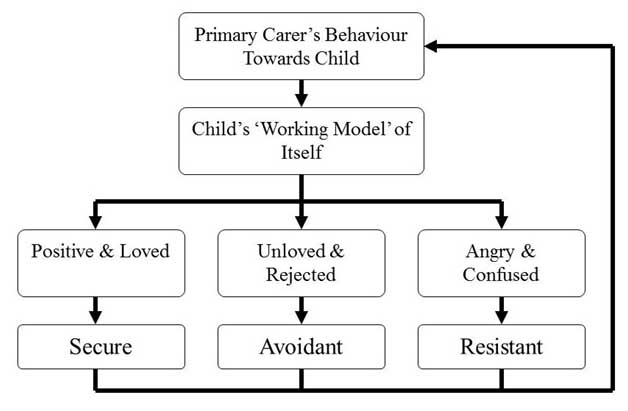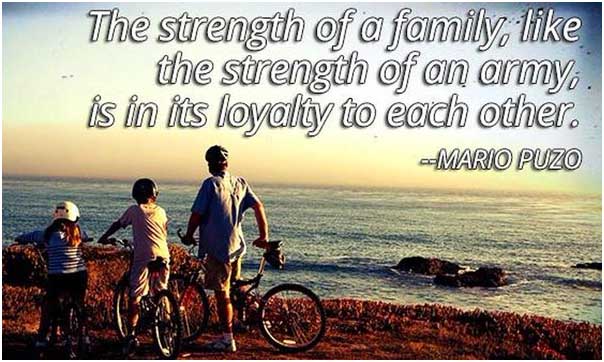Storge Love
What exactly is Storge Love? Across the globe, parents place paramount importance on ensuring the health and safety of their children, providing the emotional and practical means to succeed as adults and the transmission of the ideological and cultural values. Few will disagree that a high-quality parent-child relationship is crucial for healthy development, but pinpointing its basis baffles many.
Parents often struggle to define the love of a child. For many, the act of labor and the precise moment of birth changes their very perspective on life. It reframes the standard definitions of why we are here. It un-packs what is our purpose in life. In a nutshell, this connection is a very spiritual and personal bond for both the parent and the child.
Indeed, the first instance of love of a child is one of the very few transformative moments in a parent’s life. It is also one of the few natural occurring events that raises many arguments on the very subject of love. For example, some researchers have argued that love and affection come in many kind of forms that is; familial, sexual, friendship and pets. Another school of thought contests that there exists only one core love which cuts across all the major relationships.
Considering the parent-child bond, this second point presents some problems. Pinpointing the exact emotions and the instant bond between parent and child is not an easy feat, nor one that cannot easily be bucketed under a single definition of love. Fear, excitement, confusion and joy can all arise at any given moment, which is not often the case with other definitions of love and attachment.

Storge Love: Modern Parental Love
Academia generally agrees with this kind of idea that parental bonds with children occupy a unique emotional space. The philosophers, psychologists and the parenting experts all have their own views on why the love between a parent and a child is quite different as compared to that of a married couple, a love between friends or a love of a particular place or object. The volume of explanations go on and go.
However, somewhat reassuringly, debate around this kind of topic has raged for a several millennia. Different cultures have ascribed the different names to this form of love. Irrespective of era and location, the idea or guiding principal that the parental-child bond occupies a distinct form of love, does though remains fairly consistent.
Storge love is one such concept that aims to explain the love parents feel towards a child, and vice versa. Storgic love, not limited to the parent-child dynamic, loosely defines familial love. While it can describe attachments between siblings, people most frequently use it to describe parental love for offspring. Taking a broader view of this idea, storge is a love of unity. It is the type of love that binds the families together, races, clans and the social groupings. Patriotism is a good example of this, and in itself a characteristic of a functional parent and child relationship.
Storge Love Is Enduring
Storge love is not based on a desire, It is not fleeting. It is not impermanent. It is, for lack of a better expression, love at its most basic and pure.
The origin of both the word and concept traces back to the Golden Age of Greece. It was the age of Plato, the birth of intellectual virtue and the dawn of a modern philosophy. The age characterized existential and scientific leanings, with commonplace deliberations on basic human emotions like love and attachment. Storge is part of this tradition.
Translated from Ancient Greek, the word roughly corresponds to what we nowadays understand as natural affection. Most commonly, it deeply rooted in ideas of family and the evolving love that binds over time.
Conceptually, storge is distinct from the three other Ancient Greek concepts of love and affection. C.S. Lewis, in his study, The Four Loves describes this kind of love as the humblest and most widely diffused of loves’. However, fully understanding this idea must be considered in terms of the broader definitions of love in the Ancient Greek sense.
Firstly, Agape while also linked with connotations of love for children is more accurately used in religious or spiritual concepts. The idea of a god loving all his or her children is central to agape. On a deeper level, Agape generally refers also to the human reciprocal love for God. Its influence has been wide ranging, becoming a central tenant of the world’s great monotheistic religions.
Eros, foundation of the English word erotic, should not confuse anyone in its meaning. Eros is firmly etched into the world of sexual passion or intimacy. Digging deeper, Eros is also been used by philosophers to denote attraction to beauty itself rather than the person. Plato’s Symposium, the most famous ancient work on the subject, argues that eros is responsible for framing the ideal “Form” of youthful beauty that leads us humans to feel erotic desire.
On the other hand Philia, the final of the four loves of Ancient Greek means affectionate regard, friendship,usually between peers. Aristotle, the best-known student of Plato, understood philia as expressed in various forms. Loyalty to friends, family, and community, and relationships based on virtue, equality, and familiarity were core to his beliefs. Ever heard the expression, brotherly love? If so, you understand the guiding principle of philia and the context in which it is correctly used.
In the Greek sense, understanding what storge isn’t, when contrasted with the other four loves, is fairly straight forward. This notion was picked up further in the Christian Bible. Countless examples of acts of storge are found in the Bible, particularly the Old Testament. Iconic tales with an element of storge include the love and mutual protection among Noah and his wife, their sons and daughters-in-law in Genesis.

Storge Love Is Family Unity
Elsewhere in the Bible, the family unity element of storge was also an integral part of ancient Jewish culture. In one of the most quoted and renowned verses of Exodus, in tale of the Ten Commandments to be exact, God charges his people to: “Honor your father and your mother, so that you may live long in the land the lord your God is giving you.” In other words, the foundational concepts of storge holds gravitas in the eyes of all.
Even by fast forwarding several millennia, when considered in the context of the bond between a parent and child, this type of love continues to intrigue thinkers and regular people alike. As such, the question we will continue to ask ourselves is whether the concept of storge is still applicable in the modern world and if so, what answers does this ancient idea provide about why parents and children feel a different affection to each other than other people.
The short answer to this question is yes, the concept of storge is a foundational aspect of the parent and child relationship. Despite a widely-publicised proliferation of broken homes, estranged children and tragic cases of child abuse, storge is still applicable today. Insights drawn directly form this Ancient Greek idea into the relationship between mother/father and child that have stood the test of time.
Exploring several key aspects and applications of storge in the concept of familial love and the emotional link between parents and children that is not replicated in other relationships. We can say that is A Bond That Grows: The love between a parent and child is instantaneous and indescribable. Talk to any first time parents what they are feeling and you will likely hear them say, “it was love at first sight.” Intense as this might seem, part of the excitement of being a new parent is knowing that the bond and love will intensify further over time. While this experience is natural, this strength and depth of this love can feel equally unnatural and unexplainable.
Simply put, the love you feel for your child is core component of your make-up as parent, it is part of your wiring that grows from the moment you conceive to when you depart this world. In more simple terms, you’re primed to form instantaneous bonds with your child and there is no logical explanation as to why and how. Fortunately for many anxious first time parents, your child is equally likely to build this bond from within the womb and their first appearance in the delivery room,this phenomenon is storge love at work.

Love based on storge can appear immediately, if the Ancient Greeks, are to be believed. The flipped of this concept is that storge love intensifies with years and takes time to fully cultivate. Yes, achieving an optimum level of storge love is no quick fix. Sounds familiar, parents?
Through countless studies and libraries of research papers, psychologists, scientists and child development experts have published many fascinating and theoretical ideas in an attempt to explain the connection between parents and children. For example, the studies and arguments of academia have sought to explain why babies send ever the most hardened people into cooing hysterics. Within the same realm, other research has focused on why we deeply love our children when they get older, throw tantrums, start arguments and frequently defy even the most basic of requests. The conclusions all basically point to the same idea that your bond with your child will change over the years, will be challenged, but rarely does the intensity fade.
In support of this point, CS Lewis mused deeply on the role of storge in the world. Novelist and intellectual assert storge love as the most natural, emotive, and widespread, fostering parental bonds despite obstacles. He elaborated further in his study The Four Loves in the sense that storge is natural in that it is present without coercion; emotive because it is the result of fondness due to familiarity; and most widely diffused because it pays the least attention to superficial characteristics. All signs point to the mystery of the bond once again.
Attachment Theory and Storge
Attachment theory is another area of psychological discourse that is routed in the central ideas of storge love. It emphasizes parents’ sensitive responses to children’s needs, universally shaping parent-child relationships and influencing emotional intelligence and behavior.
First appearing in the mainstream in 1958, attachment theory in psychology was pioneered by John Bowlby, a London-based psychiatrist who worked in a Child Guidance Clinic in London. Bowlby’s hands-on experience led him to postulate on the importance of the child’s relationship with their mother in terms of developing cognitive and emotional functions. Specifically, it shaped his belief about the link between early infant separations with the mother and later maladjustment, and led Bowlby to publish his revolutionary theory.
Bowlby contrasted with contemporaries, asserting children are biologically predisposed to form attachments. The motivating factor is pure Darwinism– this attachment will help them to survive and thrive.
The survival instincts include crying and smiling with the immediate goal of stimulating caregiving responses from their parents. As opposed to other theories of the day, Bowlby stressed that determinant of attachment is not food, but care and responsiveness. This is of course was met with widespread opposition and is still attacked by academia to this day.
Equally interesting, Bowlby’s theory placed paramount important on early childhood attachment to parents. In his research he established that the critical period for developing an attachment was between birth and five years. The consequences of not developing an attachment during this period were dire in his view. Specifically, the child would suffer from several permanent developmental consequences, namely inability to regulate anger and reduced intelligence.

Though uncertain of Bowlby’s familiarity with Ancient Greek love, his attachment theory echoes storge-influenced concepts. Ideas of commitment to children, community and the sense of security all central to storge ideology are present in Bowlby’s work. Attachment theory roots in familial love, emphasizing the group’s unity and unbreakable bond. Again, this is highly consistent with the ideas of the Ancient Greeks when it came to parental love.
Storge Is Unconditional Love
Unconditional love and storge correlate, despite the former being relatively new in parenting. Let’s take a step back here to fully understand the link though. It is easy and convenient for parents to openly declare to love their children unconditionally. However, when children test the limits of parental love through acts of disobedience, defiance and disrespect, this notion can be challenged, at face-value at least. Psychologists note the US parenting approach relied on conditional methods until the 1960s, rooted in fear.
But times have changed, and so have parenting styles, which have embraced unconditional love in both name and principle. Raising a child with unconditional love means fear-free interactions, accepting them completely without restrictions or stipulations. And yes, this need for unconditional love begins at conception and grows and grows.
Storge love involves familial loyalties, responsibilities, and entitlements, directly linked to unconditional parenting love. Think of the expression “blood is thicker than water” and storge and unconditional love associated with parenting become basically synonymous.

Academics suggest unconditional love benefits children long-term, encouraging them to achieve their highest potential. Again, this complies with storge notions of duty and responsibility to one’s family and one’s self.
Interaction and your child’s mental health: If storge love is an instinctual love, it ultimately guides your interactions with your children. Over the past half century numerous groundbreaking papers have reinforced the idea that mental health of children depends on the way parents interact with them, hence the importance of following natural parental instincts rather than ego based responses. Psychologists have long debated the correct way to interact with children, and through their interactions have identified four methods.
Storge & The Parental Bond
Within the context of exploring the link between parent-child interaction and storge love, we will focus on two extremes.
Firstly, type-A parenting characterizes high control and low warmth interactions toward children. This style stems from the idea that by instituting discipline a child will become a functional adult. Parental love categorised as storge usually emphasises family responsibility, but type-A interaction often contradicts it, hindering children’s development.
Secondly, and more in line with the storge love principle of parental love and support is type-D parenting. In psychological circles, this style characterizes high control and high warmth.
Parents showing overt love display unconditional love to their children, distinguishing between the child and their actions holistically. This is a classic type –D parent. To ensure the continuity of a functional family unit, these parents are extremely consistent in their interactions with their children. They rarely confuse children by inconsistently punishing or rewarding them for the same behavior on different days.
Despite punishment, the child’s self-worth remains intact, regardless of the event. The child feels accepted, not rejected, for who they are, linking with storge love. A controlled yet loving parenting style establishes security and emotional refuge, reflecting storge principles. This parenting style fosters a deep sense of family belonging and love’s permanence, echoing storge characteristics.
Through the lens of mental health, a withdrawn, draconian style can have dire consequences for children. Feelings of total rejection brew in children as a result, leading to intense loneliness and misery, and most un-storgically, isolation. High control, low warmth parenting correlates with spikes in depression, self-harm, and suicide.
Parent and child love will continue to arouse intense debate, new theories and explanations. The bond’s strength may find explanation in science, yet a philosophical argument likely holds the most logical answer.
Storge love, rooted in family, lacks clarity but explains the unique parent-child bond, highlighting the essence of love. Ancient Greek principles endure, including storge love, which remains relevant across borders and generations of parents and children.


